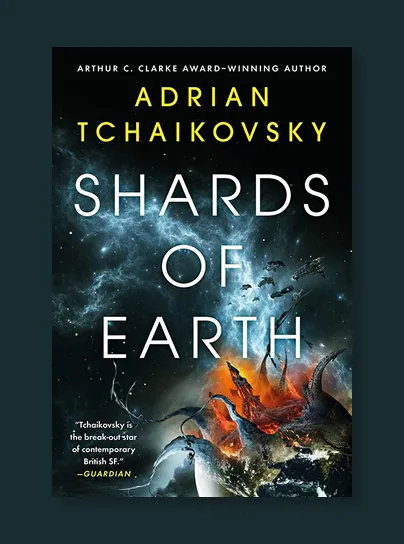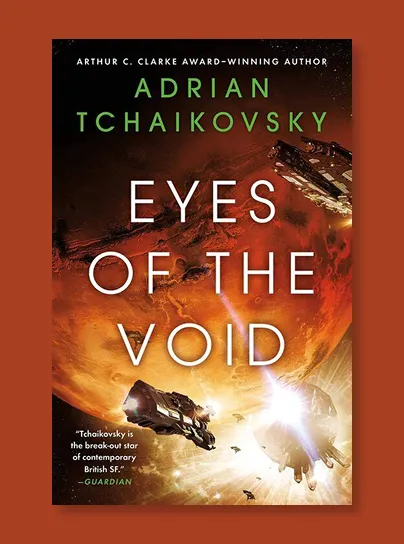
Shards of Earth
Book 1 of the Final Architecture trilogy
A great book! It took me a few chapters to get into it, but I enjoyed it a lot. A good editor could have made it sing.
It’s a solid piece of science-fiction complete with concepts that stretch the mind a bit, alien cultures, space travel, epic battles, and a diverse cast of characters.
He made some scratch calculations for an approach and burned some fuel in the mass drives for cheap and dirty momentum. Then he had the brachator drives reaching out to that liminal layer where unspace and real space met, that quantum foam of transient gravity nodes which their ‘grabby drives’ could latch on to.
The Vulture God sheared sideways through space as its inertia was shifted through thirty degrees, scudding closer towards the distant winking signal that was the Gamin. Idris tutted at his own inelegant piloting and made a few adjustments, spinning the vessel on its axis, stabilizing its drift, grabbing at another handful of the universe to pull them along a slightly different angle of approach.
One thing I really like about this book is how realistic is it when it comes to alien cultures. So often humanity's idea of who we would meet in space is based on us: bipedal, symmetrical, communicate through a mouth, etc. But that’s probably not realistic.
The characters in this story are crab-like, slug-like, gigantic moon-sized balls of crystal, mechanical beings of all shapes driven by cyber insects, clam-like beings, and humans who are differently-abled because they grew up with a lack of gravity or a lack of food. Realistically, space-faring crews would be comprised of all kinds of beings, even some with built in translators.
I love how the author used specific, unique languages for certain species. Like how the Hivers speak with eloquent qualifiers and poetry. How the translators for the Hannilambra interpret their language in curt, perky English. How Captain Rollo speaks to his crew as if they were part of his family. Those creative choices really add to the story, allowing the reader to better imagine the characters.
And then the Hiver, Trine, came in with a tray. The aroma of something like biscuits gusted in with them, just off enough to suggest the Vulture’s food printer needed looking at. Trine bent low before Havaer, proffering the tray in a lattice of their chest-mounted arms.
‘As I am now apparently some manner of ambassador, my honoured guest, it is only appropriate that I extend what hospitality I may,’ the Hiver announced.
Their translucent face bore an expression of snooty disdain. ‘Have a cookie.’
The story has an excellent premise: a planet-destroying enemy that requires all manner of beings to come together to fight against it.
It also includes layered and nuanced political factions, has several delightfully named beings and ships (one battleship is named the Ocasio!), and it rests upon a solid science-fictiony idea of what is underneath real space.
A great book! Recommended!



